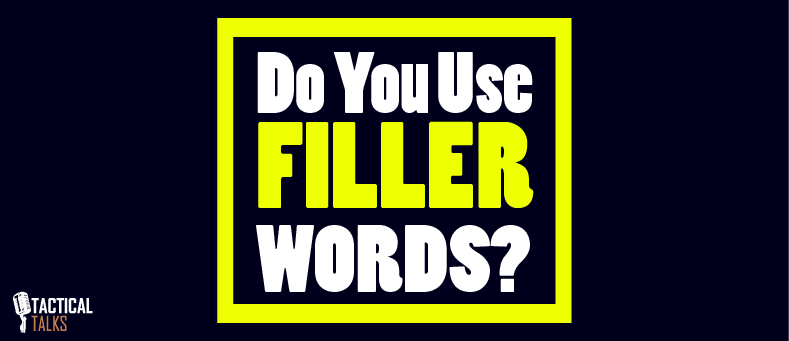Ah. Umm. Uhh. And-so-uh-umm-hmm-urrr. Filler words. Evil filler words.
Last week at a Toastmasters meeting we had a discussion about filler words and their role in public speaking, or more precisely, whether they should have a role or not.
In Toastmasters, there is something called an “Ah Counter.” Can you guess what they do? I don’t want to insult your intelligence, but just in case, the “Ah Counter” keeps track of filler word usage—both who used them and how many times one slipped from their mouth.
At this particular meeting, after the “Ah Counter” delivered the results, a question was asked. The question was: “Should our goal be to cut them out completely?”
There are a lot of opinions about this. Some militant, some balanced, some absolutely terrible. Today we’ll cover two perspectives of the argument including the pros and cons of each.
Let’s go:
Militant: Cutting Filler Words Out Completely
This argument says that filler words have no place in this world, and any use of them is disgusting.
A little extreme, sure, but it falls in line with that of being a “professional.” Yeah, yeah, whatever.
Why cut them out?
The reasoning is that they are unprofessional and detract from your message. I understand the principle behind this, but is it necessary to wipe them all out?
I’d say it more or less depends on your audience. If you speak to an audience of pristine scholars, perhaps you should clean it up, lest your credibility be battered.
- Pros: Credibility, message is more succinct, minimal distractions
- Cons: Robotic (I’m not an anti-Robite!), too perfect and out of touch with humanity
Use Filler Words, But...
This says you can use them, just not too damn much.
Why shouldn’t it be a problem if we end up using filler words?
Because EVERYONE has their own version of filler words. Some ah, some um, some make odd gurgly noises. It’s called being human.
But, with this method, one is still aware of their “danger” to distract. There’s an understanding that it is okay to be human, but that as a speaker there is the responsibility to champion the message over colloquialism.
It’s a difficult balance at times because there’s a tendency toward wanting to be at ease with the audience. Understandable because on one hand it alleviates the pressure to be perfect, which is a good thing, but on the other hand it can be too comfortable (damages the seriousness of the message).
- Pros: Builds level of comfort with audience, relatable as a human, a charismatic personality trait
- Cons: Seen as sloppy and less knowledgeable, diminishes power of the message
So...Which Filler Word Option Is Better?
Hell if I know. Just kidding, I know everything.
First off, there’s no such thing as either/or. Come to think of it, this can be applied for just about the entire art of public speaking. The Guru types will tell you they’re right, and that there’s no dispute. I’m a realist. People have varying styles of speech and personalities.
For example, let’s take typecasting in the movie biz. If a producer is looking for someone to play the role of a giant, I’m not getting a call. It’s not that they’re discriminating against midget wannabes (okay, I’m not that short—5’ 8”), it just wouldn’t look right to any audience members with eyesight.
Same concept applies to a speaker. If I were in my 70’s trying to talk like a valley girl (like totally!), it wouldn’t really fit—a confused audience is an unhappy audience. My point is, if you can pull off using filler words, then who am I to tell you to eradicate them?
When it comes to stone cold rules, there are none. There are things that work, and things that don’t. And even in those cases, the things that don’t work might work for somebody else.
The world is a funny place like that. But, despite all that, there are some fundamentals which can serve as your starting point.
So, here goes:
- Filler words are fine to use in moderation, erring on the side of less is better than more.
- Where I draw the line is when they become so rampant that the audience becomes aware of them. After all, if they are playing I-Spot-The-Um, they are so far from your message it’s not even funny.
In Closing...
I could go on but I’d just be running in circles. The answer to this problem is just not very complicated.
I think the “problem” has been blown out of proportion. Sort of like the “fake news” narrative that we’ve been fed as of late.
At any rate, don’t focus too much attention on filler words. It’s like gesturing in that regard.
Much better to just go about your business, record yourself, watch/listen to it and then determine if you’re being a distracting turd. If so, clean it up.
About this guy...

Howdy! My name is Matt Kramer and I used to suffer excruciating death when speaking in front of a group, now I LOVE it. Overcoming this fear has changed my life and it can change yours, too. My focus is to help you overcome the fear of public speaking so you can build the confidence to go after what you want in life.

